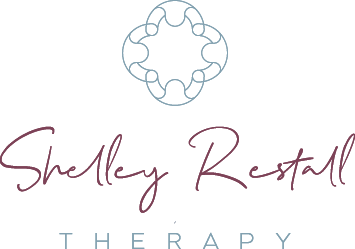How a therapist engages in self-care to sustain helping others.
As a therapist for over a decade now, I can't recall the number of exact times I've been asked, "How do you take care of yourself so that you can continue to help others?" Potentially writing this blog post, will help inspire others to engage in self-care. Just remember one thing: whether you are in a helping role or not for a career, it's still important to engage in all forms of self-care, relaxation, spiritual activities, rest, letting go, and continually work towards finding a balance in your life too through setting boundaries.
My Role: I work in a role of hearing stories others share with me daily. I am deeply grateful for this opportunity to hear others stories, in my role as a social worker helping others throughout their lifespan. I will create and hold a safe space for them to heal, and support them along their journey, wherever they may be in that moment. It's an honour to support individuals, couples, and families in their most vulnerable times, and see the ways that healing can bring fulfilment, joy, reduced stress and anxiety, as well as reconnecting with the relationships in their lives.
Stance in perspective matters: Seeing a reduction in suffering, often reminds me how, although it may be only a small one degree of change, it's a change, which always feels rewarding. I believe that my stance as a helper, comes from believing that everyone can heal, grow beyond what they've experienced, and everyone is doing the best they can, in that moment with what they have. Therefore, don't judge someone before you know their entire story! This stance helps me remain grounded, in believing everyone seeking out help has a desire to get better, and the ability to help themselves with the right support. We all try out different things to try and feel relief.
Self-care is a broad term that often reflects well focusing on aspects of how you can relax, shift a perspective in your life, and well ultimately take care of you. This may include doing things physically such as yoga, tai chi, qi gong, exercise, walking or just stretching gently. It can include breathing, meditations, and writing in a journal. Self-care can include boundary setting (YES, saying "no" is important too!), seeking out help from a professional, going for a massage, attending a religious or spiritual activity/group as well, to name a few. Self-care may include going to bed early, drinking tea to relax and nourish yourself, or taking a hot bath. Be sure to include practising being present, expressing gratitude for the moment of peace, quiet, and whatever you are doing that brings you joy, or relief as part of the self-care practice. Self-care needs to be individualised for the unique needs and preferences for each of us.
Self-care can also include things we may not always perceive to be part of it. Remaining curious about life, the world around you, and your community is a great way to start exploring. Take a day trip, a few hours, go for a hike locally, just observe the surroundings. Consider setting up a travel plan to go somewhere you have always wanted to. It gives you something to look forward to and to enjoy. Practice setting boundaries, this can include taking time to reflect on what you value, want, and don't want, don't need anymore in your life. The art of decluttering your life, and aligning your values to your daily living is ongoing. Another great suggestion for self-care is to try out a new hobby, reactivate an old hobby you lost interest in, or get too busy to do.
My favourite self-care techniques: Mixed exercise- weight lifting, walking mindfully, yoga, mindful stretching. Attending a Reiki healing session, seeking out professional support if needed, meditation daily, and of course physically focusing on a healthy balanced diet. I enjoy reading, learning new things, as it keeps my focus of my work and life balanced, and always striving for new engaging ways to do things. I spend time with loved ones, family and friends who bring laughter, (laughter is the best medicine!), and smile until my cheeks hurt. I seek out grounding in nature during all seasons. I love my dog because it holds me accountable to walk even during rain and snow. I can focus on feeling the changing temperatures, breathing in the fresh air, tasting the air, listening to the sounds of my community, and just be present in the moment.
Successful Steps with Sustaining Self-Care: Getting into a routine, and sticking to it, is at the core. I have found personally that creating routines and then working at sticking to them helps immensely. When we have a habit of say, prayer or mindfulness skills with 5 senses with each meal we are more likely to do it each time, and bring a reset opportunity throughout the day, or at minimum once a day leading us to notice feeling less stressed and overwhelmed. Of course, life gets busy, we get distracted, and we can get away from routines, however when we practise mindfulness we can observe our bodies, minds, souls telling us to get back to our old patterns, and we can re-enter into the patterns. We also can practise self-compassion of being kind to ourselves, including forgiveness when we fall out of a helpful routine, helping us get back into it sooner with less added stress. Remember we are creatures of habit, which makes creating new routines difficult, and on the flip side, keeps us accountable to doing helpful routines when they are used often.
What’s your favorite ways to engage in self-care? Do you notice that you are more anxious, stressed or even irritable when you don’t engage in enough self-care?

